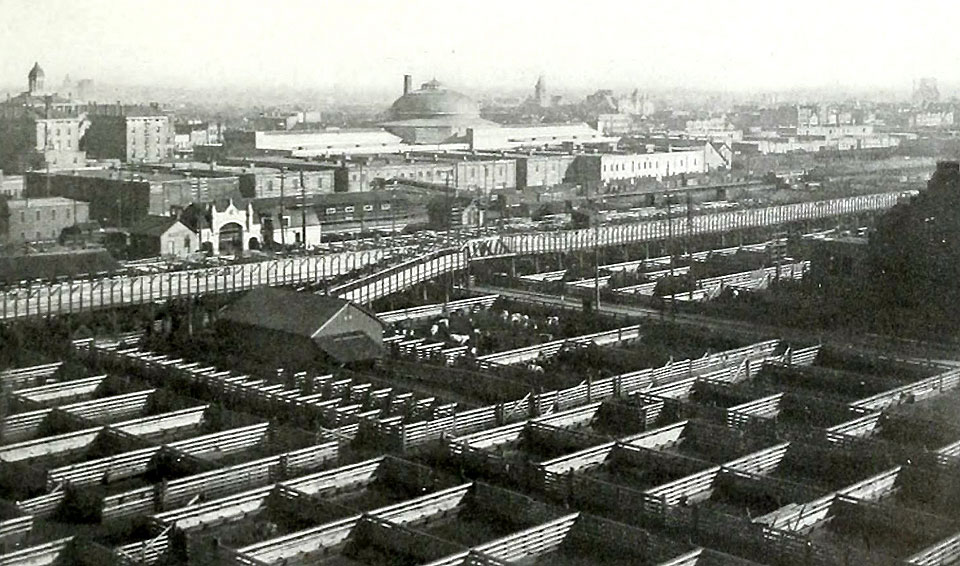
On March 30, 1918, workers in Chicago’s famous stockyards finally won their demand for the eight-hour day. The historical record is thin as to how this came about on that particular day, but the eight-hour movement had a deep and resonant influence in Chicago.
“Eight hours for work, eight hours for rest, and eight hours for what you will” became the international call for labor rights in the 19th century. Already in 1864, when the Chicago labor movement emerged, the eight-hour day figured prominently as a central demand.
A citywide strike beginning May 1, 1867, shut Chicago down for a week but collapsed with no progress made on the eight-hour issue. Almost two decades later, again on May 1, 1886, a mass labor demonstration led by anarchists and socialists was followed by a protest three days later, which was disrupted when a bomb exploded in Haymarket Square. The subsequent martyrdom of those labor leaders accused of conspiracy to plant the bomb radicalized millions of working people around the world.
On Feb. 18, 1918, in testimony at a Chicago stockyards wage-arbitration hearing, J. Ogden Armour, president of Armour & Co., said he was in favor of the principle of equal pay for women. He also said that he believed that packing-house employees should receive extra compensation for working Sundays, Christmas, and other holidays, as well as additional pay for overtime. He also said he was willing to consider the adoption of the eight-hour workday.
Finally, for stockyard workers, the eight-hour day became the norm six weeks later, on March 30th. World War I was in progress then, and it could be that labor peace was the price to pay for continued labor loyalty to the war effort even as the IWW and elements of the Socialist Party vehemently opposed the war.
It would take another 20 years, until 1938, before the eight-hour day became the law throughout the United States. In that year, as part of the New Deal, the Fair Labor Standards Act was passed, but it affected only 700,000 workers, leaving agricultural and domestic workers out. This is an example of how the advances of the New Deal were achieved with “Solid South” Democratic votes: Progress with deep-cutting compromises.
The struggle for the eight-hour day is not over. Many jobs, such as in fast-food restaurants, are called “managerial,” and such “managers” can be obliged to work longer hours without overtime. In many other jobs as well, overtime is not additionally compensated. And in today’s “gig economy,” many workers are “self-employed” contractual employees and beyond the reach of labor laws. Furthermore, in the new “casual” economy, where the full-time, living-wage job (not to mention a union job with benefits and a pension) has become something of a rarity, workers may put in short shifts in two or three different jobs, which add up to far more than eight hours; and no one compensates them for their time or travel expense between them.
We celebrate our victories, at the same time recognizing there is still a long way to go.












Comments